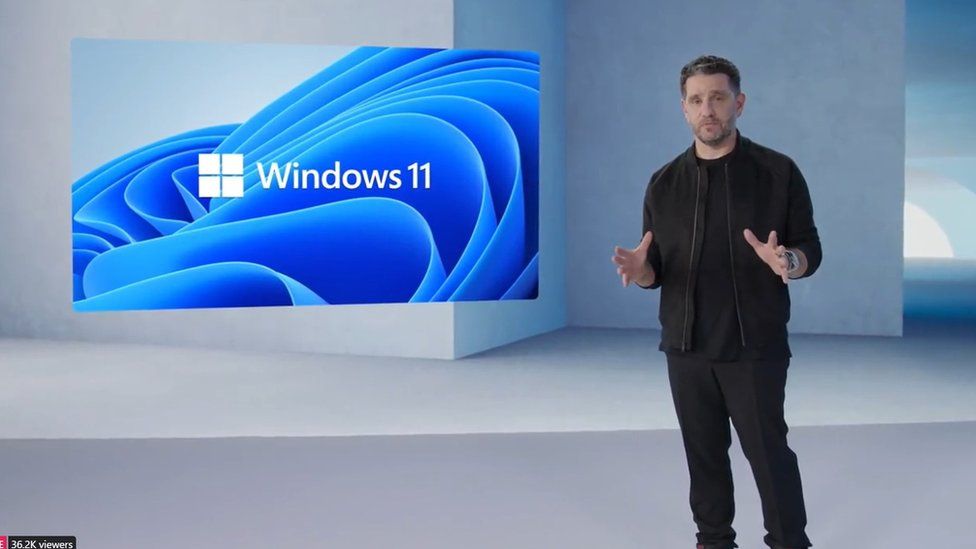The TV ads have started for Windows 11 with all the beautiful colors and the vague tag line, “It all starts now…” and everyone is wondering
- Is this really “the next big thing?”
- Is it really bigger-better-faster?
- And most importantly, should I upgrade? (Spoiler alert: probably not.)

So, what about Windows 11? Is it a big deal? Well the user experience is kind of like Windows 10 with new make-up. An industry insider says Windows 11 is “a foundation of Windows 10 with a graphical update that includes a new Taskbar orientation and icons, a new Start menu, Widgets, and not much more (for now).”
To be honest, most of the significant improvements, like to security for example, are under the hood where the average user will never notice them.
There are important considerations and rules of thumb when upgrading ANY version of Windows to the next version. Here are some of them.
- EVERY new version of Windows requires significantly more horsepower (more powerful hardware) than the current version. That means that if the current version runs really well on your current computer, the new version probably WON’T, at least not without some serious upgrading
- Because there are dozens of brands and thousands of models, Microsoft can’t possibly test the new version on all the hardware that is out there
- THERE ARE GOING TO BE BUGS. It usually takes 6 to 12 months to fix all the bugs in a new version
- In Windows 11 in particular, the processor requirements are HUGE. If your computer is five years old or older, it likely won’t run Windows 11 well
- Microsoft is not going to stop supporting Windows 10 until October of 2025, so there is absolutely NO URGENCY to move to Windows 11
- Remember, the main reason for an operating system upgrade is to sell new computers, NOT to make your current computer easier and better to use
On hardware powerful enough to run it, is Windows 11 fast?
Yes it is.
If you’re buying a new computer, should you get it with Windows 11 instead of 10?
Yes you should, if the computer has a very fast processor and a lot of RAM (memory).
Should you upgrade your current computer to Windows 11?
Probably not.
Very few people are likely to have a computer with adequate specifications to run it well. And what you will gain is likely not worth what you may have to spend to support the upgrade.
Remember, Windows 10 is a wonderful and stable operating system. If you have a computer that is running it well, there is no need to change for fear of missing out. Just enjoy what you have.
Specifics about what’s new and different in Windows 11 are beyond the scope of this article. If you want to learn more about Windows 11 and what it offers, check out this article from CNET, a trusted industry source. It is loaded with links to other articles, so it’s packed with lots of good information and was just published Oct. 31, 2021.
Windows 11 is a free upgrade. To find out if your current computer is sufficient to run Windows 11, download the PC Health Check Tool here. (Clicking the link initiates the download.)

This is strictly an opinion piece and should not be construed as anything more. It is meant to be informative and helpful. I have 25 years’ experience as a computer technician.



